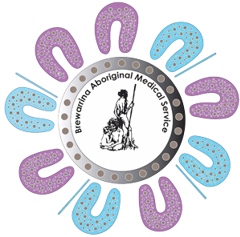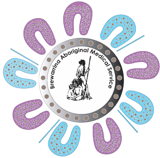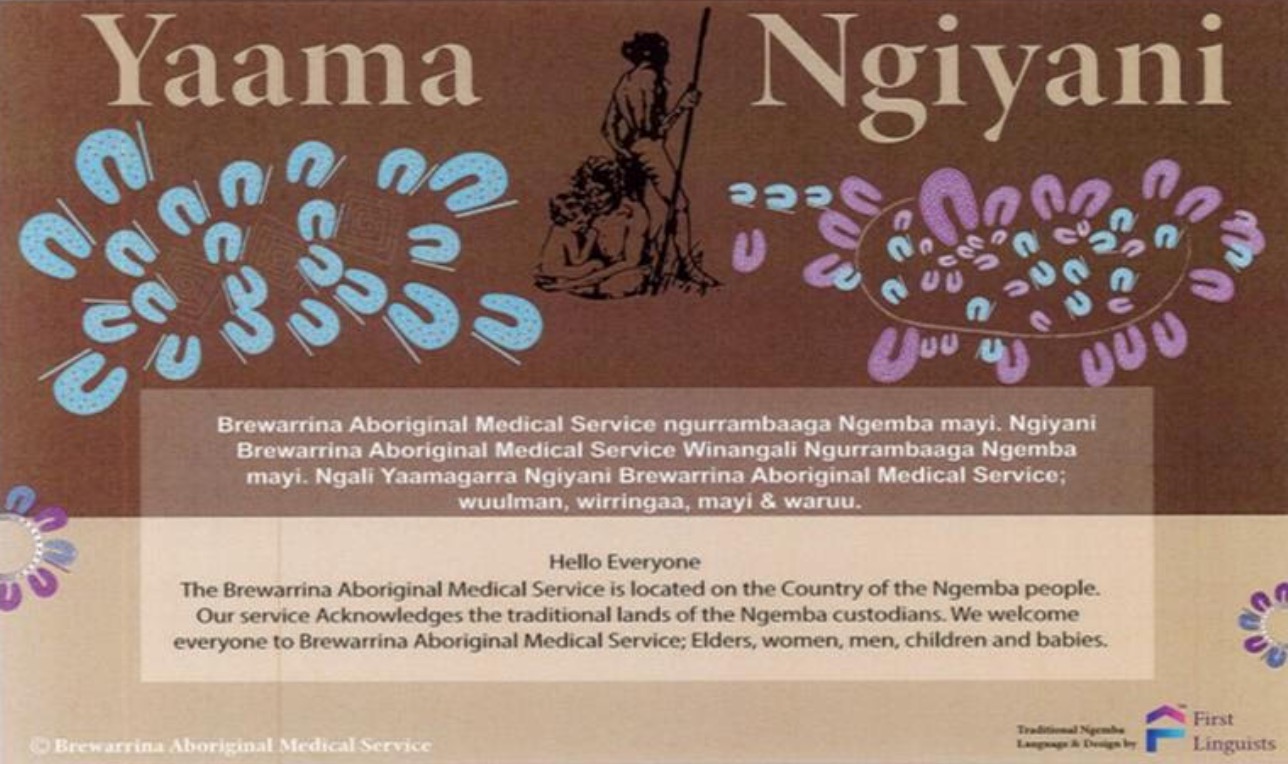Official Word Definitions - - Brewarrina AMS
Official Word Definitions
 Elders Instructions for Living in Gamilaraay/Yuwaalaraay/Yuwaalayaay Country
Elders Instructions for Living in Gamilaraay/Yuwaalaraay/Yuwaalayaay Country
Aboriginal Health
Means not just the physical well being of an individual but refers to the social emotional and cultural well being of the whole community in which each individual is able to achieve their full potential as a human being thereby bringing about the total well being of their Community. It is a whole of life view and includes the cyclical concept of life - death - life.
Aboriginal Community Control
Means the empowering of a community through the adoption of appropriate organisational structures which enable all Aboriginal people in the local Community the opportunity to be represented as members and to be involved in the decision making process and, therefore, the right to participate and contribute to the goals, structure and operation of its health services. In general, health data currently under-represents the health experience of Aboriginal communities and, unfortunately, health status may be worse than the figures indicate.
Aboriginal Health Worker
AH&MRC Aboriginal Health Worker and Torres Strait Islander Health Worker Position Statement.
The Aboriginal Health Worker and Torres Strait Islander Health Worker is defined by self governance, self determination, definition and ownership by the local Aboriginal Community Controlled Health Service. Credence is given to vision and scope of health service delivery encompassed in best clinical pathway and practices essential in holistic care.
Each local community health worker faces the challenge of integrating western health practice with cultural needs and traditional health principles and practices of his/her community.
All health workers provide direct services to individuals and families, plan to meet future needs and promote wellbeing. The term “health” is used holistically, spiritually, psychological and social well being.
Aboriginal people and Torres Strait Islander people exercise self-determination with respect and regard, with an heirloom to sovereignty, to reduce mortality and morbidity rates for all.
Aboriginality
The definition proposed in the Constitutional Section of the Department of Aboriginal Affairs' Report on a review of the administration of the working definition of Aboriginal and Torres Strait Islanders (Canberra, 1981) and since used by the Federal Government as their working definition, in state legislation and by the High Court, should be the only acceptable definition of Aboriginality.
This definition is a three-part definition requiring all 3 parts to be established for Aboriginality to be recognised:
- Descent: The individual can prove that a parent is of Aboriginal or Torres Strait Islander descent.
- Self-Identification: The individual identifies as an Aboriginal or Torres Strait Islander.
- Community Recognition: The individual is accepted as such by the Aboriginal or Torres Strait Islander community in which he/she is a part.
Aboriginal Medical Services
What is the difference between and Aboriginal Medical Service (AMS) and Aboriginal Community Controlled Health Service (ACCHS)?
There are important differences between these two terms though they are often used interchangeably and sometimes incorrectly so! All ACCHSs are AMSs but the reverse is not the case.
An Aboriginal Medical Service (AMS):
Is a health service funded principally to provide services to Aboriginal and Torres Strait Islander individuals. An AMS is not necessarily community controlled. Therefore not all AMSs are eligible to be members of NACCHO and its affiliates. If an AMS is not community controlled it will be a government health service run by a State or Territory government. These non-community controlled AMSs mainly exist in the Northern Territory and the northern part of Queensland.
An Aboriginal Community Controlled Health Service (ACCHS):
Is a primary health care service initiated and operated by the local Aboriginal community to deliver holistic, comprehensive, and culturally appropriate health care to the community which controls it (through a locally elected Board of Management).
To be a member of NACCHO and its affiliates an ACCHS must be:
- Initiated by a local Aboriginal community.
- Based in a local Aboriginal community.
- Governed by an Aboriginal body which is elected by the local Aboriginal community.
- Delivering a holistic and culturally appropriate health service to the Community which controls it.
Aboriginal Health Acronyms
ACCHS - Aboriginal Community Controlled Health Services
ACT - Australian Capital Territory
AFN - Assembly of First Nations
AHCSA - Aboriginal Health Council of SA
AHF - Aboriginal Healing Foundation
AIATSIS - Australian Institute of Aboriginal and Torres Strait Islander Studies
AIHW - Australian Institute of Health and Welfare
ATSIC - Aboriginal and Torres Strait Islander Commission
ATSIS - Aboriginal and Torres Strait Islander Services
BAHSL - Brewarrina Aboriginal Health Service Limmites
BSF - Building Solid Families
BTH - Bringing Them Home
CASG&FAC - Central Australian Stolen Generations & Families Aboriginal Corporation
COAG - Council of Australian Governments
CSU - Charles Sturt University
DoHA - Department of Health and Ageing
DVC - Department of Victorian Communities
FaCSIA - Department of Families, Community Services and Indigenous Affairs
FTE - Full-Time Equivalent
GPP - Good Practice Principle
HREOC - Human Rights and Equal Opportunity Commission
IPS - Indigenous Psychological Services
LCC - Law Commission of Canada
MCATSIA - Ministerial Council for Aboriginal and Torres Strait Islander Affairs
MoU - Memorandum of Understanding
NAIDOC - National Aboriginal and Islander Day of Observance Committee
NSDC - National Sorry Day Committee
NSW - New South Wales
NT - Northern Territory
OATSIH - The Office for Aboriginal and Torres Strait Islander Health
PTSD - Post Traumatic Stress Disorder
QAIHC - Queensland Aboriginal & Islander Health Consortium
QLD - Queensland
RACGP - Royal Australian College of General Practitioners
RANZCP - Royal Australian and New Zealand College of Psychiatrists
RC - Regional Centre
RCIADIC - Royal Commission into Aboriginal Deaths in Custody
RTO - Registered Training Organisation
SA - South Australia
SEWB - Social and Emotional Wellbeing
SDRF - Service Development and Reporting Framework
SLCC - Senate Legal and Constitutional Committee
SNAICC - Secretariat of National Aboriginal and Islander Child Care
WA - West Australia
WAACHS - West Australian Aboriginal Child Health Survey
WAMS - Walgett Aboriginal Medical Service Pty Lmd


